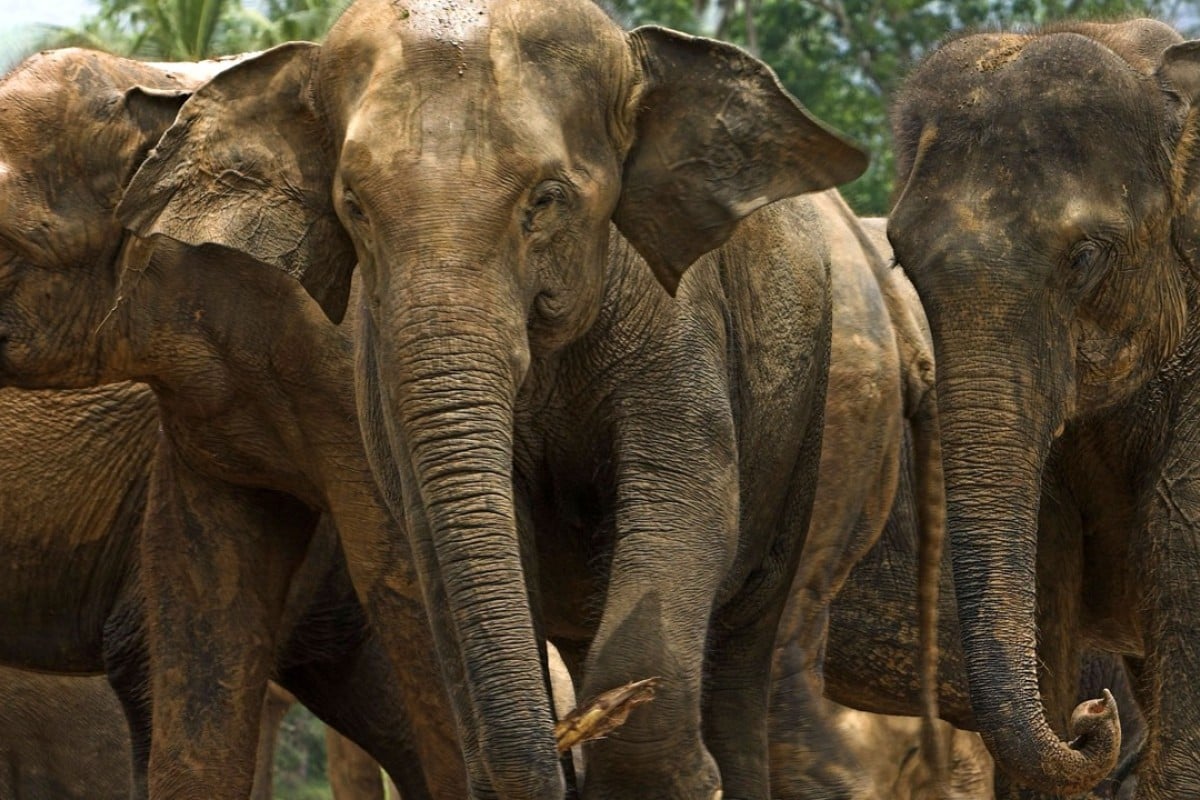Elephant Dung Coffee: An Exotic, Expensive Brew

Updated · Oct 15, 2024


Earthy in flavor and smooth on the palate, coffee made from elephant dung is not only one of the world’s most unusual specialty coffees. At $500 per pound, it’s also among the priciest. In the mountains where Thailand meets Laos and Myanmar, the coffee’s creator cites biology and scientific research to answer the basic question: Why elephants?
In the lush hills of northern Thailand, a herd of 20 elephants is excreting some of the world’s most expensive coffee. Trumpeted as earthy in flavor and smooth on the palate, the exotic new brew is made from beans eaten by Thai elephants and plucked a day later from their dung. A gut reaction inside the elephant creates what its founder calls the coffee’s unique taste.
Stomach turning or oddly alluring, this is not just one of the world’s most unusual specialty coffees. At $1,100 per kilogram ($500 per pound), it’s also among the world’s priciest.
For now, only the wealthy or well-traveled have access to the cuppa, which is called Black Ivory Coffee. It was launched last month at a few luxury hotels in remote corners of the world — first in northern Thailand, then the Maldives and now Abu Dhabi — with the price tag of about $50 a serving.
The Associated Press traveled to the coffee’s production site in the Golden Triangle, an area historically known for producing drugs more potent than coffee, to see the jumbo baristas at work. And to sip the finished product from a dainty demitasse.
In the misty mountains where Thailand meets Laos and Myanmar, the coffee’s creator cites biology and scientific research to answer the basic question: Why elephants?
“When an elephant eats coffee, its stomach acid breaks down the protein found in coffee, which is a key factor in bitterness,” said Blake Dinkin, who has spent $300,000 developing the coffee. “You end up with a cup that’s very smooth without the bitterness of regular coffee.”
The result is similar in civet coffee, or kopi luwak, another exorbitantly expensive variety extracted from the excrement of the weasel-like civet. But the elephants’ massive stomach provides a bonus.
Think of the elephant as the animal kingdom’s equivalent of a slow cooker. It takes between 15-30 hours to digest the beans, which stew together with bananas, sugar cane and other ingredients in the elephant’s vegetarian diet to infuse unique earthy and fruity flavors, said the 42-year-old Canadian, who has a background in civet coffee.
“My theory is that a natural fermentation process takes place in the elephant’s gut,” said Dinkin. “That fermentation imparts flavors you wouldn’t get from other coffees.”
At the jungle retreat that is home to the herd, conservationists were initially skeptical about the idea.
“My initial thought was about caffeine — won’t the elephants get wired on it or addicted to coffee?” said John Roberts, director of elephants at the Golden Triangle Asian Elephant Foundation, a refuge for rescued elephants. It now earns 8 percent of the coffee’s total sales, which go toward the herd’s health care. “As far as we can tell there is definitely no harm to the elephants.”
Publish Author: By Jocelyn Gecker
December 9, 2012 9:47AM

Rohan is a senior editor at Sci-Tech Today with extensive knowledge of digital marketing, SEO, and social media optimization (SMO). He is skilled at creating and editing detailed articles filled with accurate statistics that readers find valuable. As a senior editor, Rohan carefully reviews and quality-checks content from multiple writers before it is published. Additionally, he creates infographics to accompany the statistics, making the information easier to understand and more engaging for readers. Rohan's dedication ensures that Sci-Tech Today delivers high-quality and informative content to its audience.









